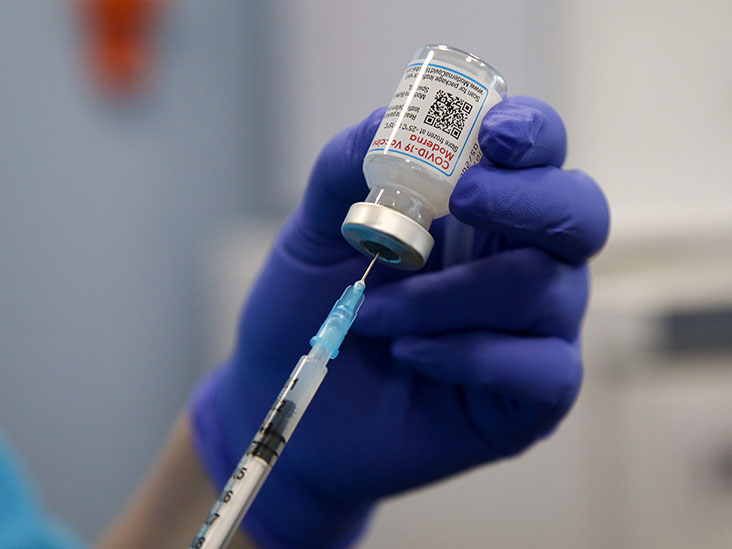- On August 31, the FDA authorized updated “bivalent” COVID-19 boosters for the Moderna and Pfizer vaccines.
- Bivalent boosters offer better protection against COVID-19 variants, including the dominant Omicron variants, which are predicted to circulate this fall and winter.
- Moderna and Pfizer’s bivalent boosters will replace the current monovalent boosters for eligible individuals — Moderna is available to people ages 18 and Pfizer for 12 and up.
On Wednesday, August 31, the Food and Drug Administration (FDA) appended its
The FDA authorized the bivalent formulations of the Moderna and Pfizer vaccines to be used as a single booster dose at least two months following a primary or booster vaccination.
“The FDA has been planning for the possibility that the composition of the COVID-19 vaccines would need to be modified to address circulating variants, said Dr. Peter Marks, Ph.D., director of the FDA’s Center for Biologics Evaluation and Research, in a
The bivalent formulation of the Moderna COVID-19 vaccine is authorized as a single booster for individuals 18 years and older. Meanwhile, the Pfizer-BioNTech COVID-19 vaccine can be used as a booster dose in individuals 12 and up.
“We are confident in the evidence supporting these authorizations,” Dr. Marks continued. “The public can be assured that a great deal of care has been taken by the FDA to ensure that these bivalent COVID-19 vaccines meet our rigorous safety, effectiveness, and manufacturing quality standards for emergency use authorization.”
Bivalent vaccines, which stimulate an immune response against two different antigens in a single inoculation, contain two messenger RNA (mRNA) components of the SARS-CoV-2 virus: one includes the original strain of SARS-CoV-2, and the other is similar to the BA.4 and BA.5 omicron variants.
Experts have been calling for the development of multivalent vaccines or “updated boosters” since they provide better protection against several SARS-CoV-2 variants, including Omicron. The current dominant BA.4 and BA.5 Omicron variants are expected to circulate this fall and winter.
“As we head into fall and begin to spend more time indoors, we strongly encourage anyone eligible to consider receiving a booster dose with a bivalent COVID-19 vaccine to provide better protection against currently circulating variants,” said FDA Commissioner Dr. Robert M. Califf in a news release.
Infectious disease specialist Dr. Monica Gandhi, MPH, professor of medicine at the University of California, San Francisco, told Medical News Today that the updated booster can increase antibodies in humans to the circulating dominant subvariant, which she says is mostly BA.5.
Despite the potential for effectiveness against the subvariants, Dr. Gandhi noted that evidence in humans is still lacking.
“To be fair, we need to note that we only have data in mice of increased antibodies at this point,” she said. “We do not have human data on this new booster, either antibody or clinical data. However, there is biological plausibility that these updated boosters will curb cases by increasing antibodies as we enter the winter.”
Still, Dr. Gandhi pointed out some recent data that can help clarify how we use these boosters and for whom they’re most appropriate.
Monovalent boosters still offer protection
Individuals who’ve received a monovalent booster shot are still protected from developing severe illness from COVID-19. A recent paper published earlier this month in
Not all individuals require a second booster
Dr. Gandhi cited another
Older adults, the immunocompromised may need it most
“Given all of the data showing strong protection of the previous mRNA vaccines against severe disease, I would recommend this Omicron specific booster for older people who benefit from an “antibody boost” during times of high viral circulation,” Dr. Gandhi said.
“This is because B cells typically take 2–4 days to make neutralizing antibodies, which may be too long to wait for those who are more susceptible to severe disease.”
“I would recommend this booster shot for those who are immunocompromised or those who are 60 years and above, and preferably in those whose last shot was more than 6 months ago. I also see no harm in younger people getting this Omicron-specific booster — but given that confusing messaging on boosting may have led to a lower booster uptake among older individuals in the U.S., I would definitely encourage this booster most for those 60 years of age and older.”
– Dr. Monica Gandhi, MPH, infectious disease specialist and professor of medicine at the University of California, San Francisco
Since 2020, the current FDA-approved monovalent COVID-19 vaccines, which contain a component from the original strain of SARS-CoV-2, have been safely administered to millions of people in the United States.
The FDA’s authorization of bivalent vaccines as single-dose boosters means the monovalent mRNA COVID-19 vaccines are no longer authorized as booster doses for people 12 years and older.
The FDA states that it will continue to evaluate future data to support the authorization of bivalent COVID-19 boosters for other age groups.
For now, infectious disease specialists like Dr. Gandhi said that providing resources and attention to the groups at the highest risk of severe illness from COVID-19 can help ensure they get the interventions they need to stay healthy.






